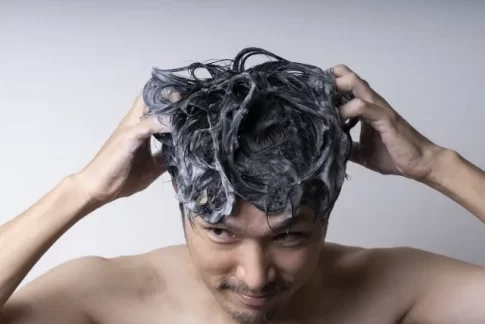この記事の概要
Alopecia in women has different causes and characteristics than in men. In particular, fluctuations in female hormones often have a significant impact. Thinning hair and hair loss can directly affect appearance and cause emotional stress. This article will discuss female-specific alopecia, its causes and countermeasures in detail, and how hair transplant surgery can help.
Causes of female hair loss
Hormonal imbalance
Most hair loss in women is caused by hormonal imbalance. Hormonal imbalance is particularly common in the following situations:
Pregnancy and childbirth: Estrogen secretion increases during pregnancy, but decreases rapidly after childbirth, which can lead to progressive hair loss.
Menopause: During menopause, estrogen production decreases and hair loss may occur.
Polycystic ovary syndrome (PCOS): Excessive production of androgens (male hormones) can cause symptoms similar to male pattern baldness.
Other causes
Besides hormonal imbalance, other causes of hair loss in women include:
Stress: Emotional stress can affect hormone balance and lead to hair loss.
Nutritional deficiencies: Lack of vitamins and minerals can negatively affect hair health and lead to hair loss.
Heredity: If there is a family history of alopecia, hair loss may be genetically predisposed.
Measures for female hair loss
Adjusting hormone balance
If the cause is a hormonal imbalance, treatment to adjust the hormone balance is effective.
Hormone replacement therapy (HRT): Provides estrogen and progesterone to help balance hormones.
Antiandrogens: Antiandrogens, such as spironolactone, are used to block the effects of androgens.
Stress Management
If stress is the cause, proper stress management is necessary.
Relaxation: Implement relaxation techniques such as meditation, yoga, and deep breathing to reduce stress.
Counselling: By undergoing psychological counselling, you can reduce mental stress.
Nutritional supplementation
If the cause is a nutritional deficiency, eat a balanced diet to get the necessary nutrients.
Vitamins and minerals: Eat a diet rich in B vitamins, vitamin D, zinc, and iron.
Supplements: Vitamin and mineral supplements may be provided as needed.
Hair transplants to combat female hair loss
Hair transplantation is one of the effective treatments for female hair loss. Below are the benefits and precautions of hair transplantation .
Benefits of hair transplant
Natural finish: Because your own hair is used, the finish is natural and feels natural.
Long-term effects: The transplanted hair follicles continue to grow hair continuously, providing long-term rejuvenation effects.
Increased self-confidence: Improving your appearance can boost your self-esteem and confidence.
Precautions for hair transplantation
Check suitability: Consult with a specialist to check whether hair transplant surgery is suitable for you.
Post-operative care: It is important to take good care of your scalp after surgery and keep it properly moisturized and clean.
Cost and risks: It is important to fully understand and accept the surgical costs and risks before undergoing surgery.
Hair transplant procedure and post-operative care
Surgery procedure
Counseling: Through counseling with a specialist, we will confirm your suitability for hair transplant surgery and create a treatment plan.
Surgery Preparation: Before surgery, your scalp will be cleansed and properly prepared.
Surgery: Using the FUT or FUE method, healthy hair roots are harvested and transplanted into the thinning areas .
Post-operative care: Caring for your scalp after surgery to promote recovery.
Post-operative care
Keeping your scalp clean: After surgery, follow your doctor’s instructions to gently wash and keep your scalp clean.
Moisturize and nourish: Use moisturizing creams and consume a nutritious diet to keep your scalp healthy.
Manage Stress: Stress can have a negative impact on hair health, so embrace relaxation techniques and keep your mind and body in balance.
summary
Hair loss specific to women occurs due to hormonal imbalance, stress, nutritional deficiencies, etc. Adjusting hormone balance, managing stress, and proper nutrition are effective countermeasures. Hair transplantation, when used in conjunction with these countermeasures, is an effective treatment that improves appearance and psychological stability. With the proper treatment and care under the guidance of a specialist, you can enjoy life with confidence.








